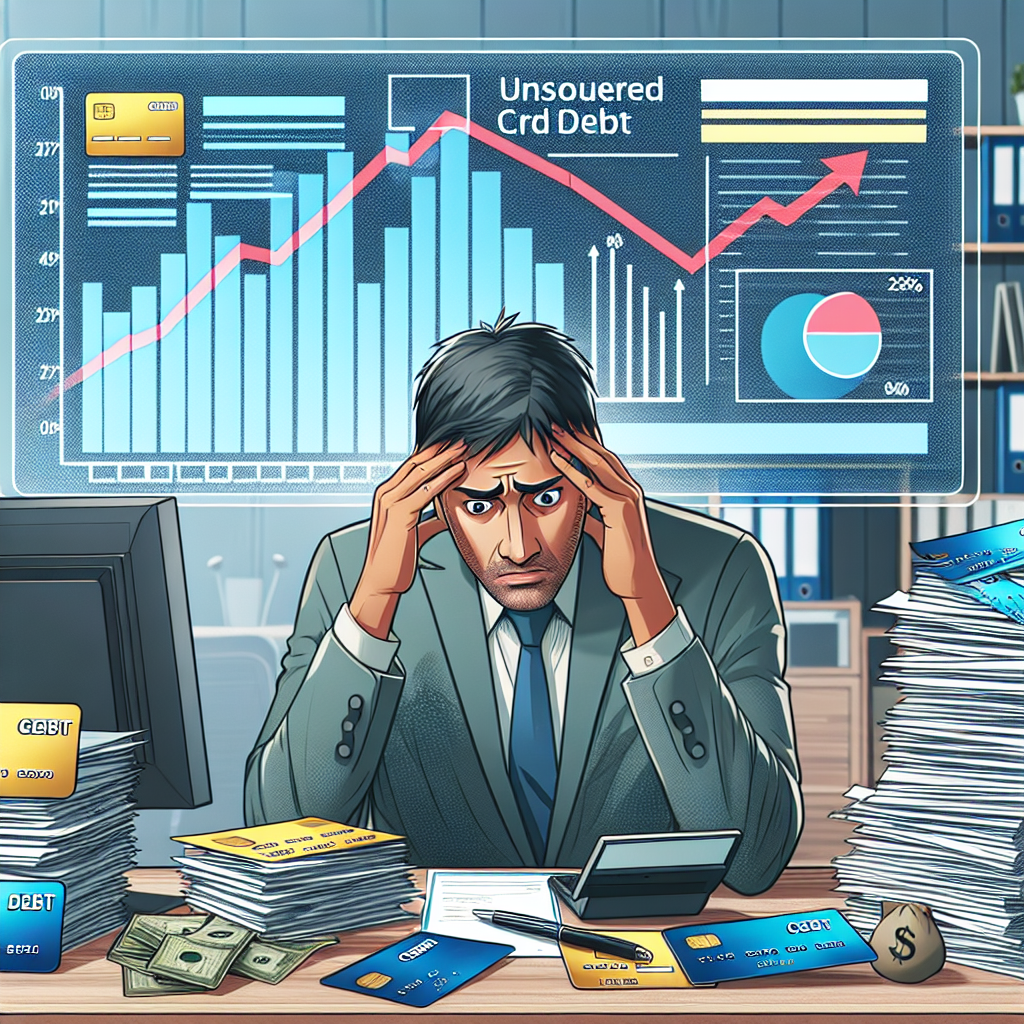
Unsecured credit card debt
Understanding Unsecured Credit Card Debt
In today's fast-paced world, the convenience of credit cards has made them a popular choice for consumers. However, with the ease of spending comes the risk of accumulating unsecured credit card debt. This type of debt is particularly concerning because it lacks collateral, meaning that if you fall behind on payments, creditors can take legal action, but they cannot seize a specific asset to recover the amount owed. In this article, we will explore what unsecured credit card debt is, how it impacts consumers, and strategies for managing or eliminating it.
What is Unsecured Credit Card Debt?
Unsecured credit card debt arises when individuals use their credit cards to make purchases or take cash advances and are unable to pay off the balance in full. Unlike secured debts, such as mortgages or car loans, unsecured debts are not backed by any physical asset. This means that lenders are reliant on the borrower's promise to repay the debt. If the borrower defaults, the lender can pursue collections, but they cannot automatically seize any property.
Causes of Unsecured Credit Card Debt
Many factors contribute to the accumulation of unsecured credit card debt. Understanding these causes can help individuals avoid falling into the same financial trap. Common causes include:
- Overspending: Impulsive buying and a lack of budgeting can quickly lead to a debt spiral.
- Unexpected Expenses: Medical emergencies, job loss, or urgent home repairs can lead to reliance on credit cards.
- Low Financial Literacy: Many individuals are not familiar with interest rates, payment structures, and the long-term impact of carrying a balance.
- Promotional Offers: Introductory rates and zero-interest deals can encourage people to make large purchases without considering the eventual repayment.
The Consequences of Unsecured Credit Card Debt
The implications of carrying unsecured credit card debt can be severe, ranging from financial instability to long-term damage to credit scores. Here are some potential consequences:
Impact on Credit Score
Your credit score is pivotal for your financial health. High balances relative to your credit limit can negatively affect your credit utilization ratio, which in turn can lower your score. This reduction can hinder your ability to qualify for loans or favorable interest rates in the future.
Increased Interest Rates
If you miss payments or default on unsecured credit card debt, lenders can increase your interest rates significantly. This makes it even harder to pay off the existing balance, leading to a vicious cycle of debt accumulation.
Legal Action from Creditors
While creditors cannot seize specific assets tied to unpaid unsecured debts, they can take legal action to recover their money, which may result in wage garnishments or bank account levies.
Strategies for Managing Unsecured Credit Card Debt
Managing unsecured credit card debt is crucial to achieving financial stability. Here are some practical strategies to consider:
Create a Budget
One of the first steps in managing debt is creating a budget. This allows you to track your income and expenses, helping you identify areas where you can cut back and allocate funds towards debt repayment.
Debt Snowball vs. Debt Avalanche Method
Two popular debt repayment strategies include the debt snowball and the debt avalanche methods.
- Debt Snowball: Focus on paying off the smallest debts first while making minimum payments on larger debts. This method can provide a sense of accomplishment.
- Debt Avalanche: Prioritize debts with the highest interest rates, saving more money in interest payments over time.
Consider Debt Consolidation
If you have multiple credit card balances, consolidating them into a single loan can simplify repayments and potentially reduce the overall interest rate. Options for debt consolidation include personal loans, balance transfer credit cards, and home equity loans.
Seeking Professional Advice
For some individuals, managing unsecured credit card debt alone can be overwhelming. In such cases, seeking professional advice is paramount. Financial advisors or credit counseling agencies can offer guidance and resources tailored to your specific financial situation.
Credit Counseling Services
Credit counseling services can help you understand your debt situation, create a plan for repayment, and negotiate with creditors on your behalf. Many nonprofit organizations offer these services for free or at a low cost.
Debt Management Plans (DMP)
One option that credit counseling services may help you set up is a Debt Management Plan (DMP). This involves the counselor negotiating lower interest rates with your creditors and consolidating your payments into a single monthly payment to the counseling agency, which then pays your creditors.
Educating Yourself on Credit Management
Taking the initiative to educate yourself about personal finance can be empowering and help prevent future debt problems. Here are some resources to consider:
- Books: Numerous books focus on personal finance, budgeting, and debt management.
- Online Courses: Websites like Coursera and Udemy offer courses on financial literacy, which can provide valuable information.
- Podcasts: Many finance-focused podcasts provide insights and tips for managing debt and improving financial health.
Conclusion: Taking Control of Your Financial Future
Unsecured credit card debt can feel like a suffocating burden, but it doesn't have to define your financial future. By understanding the nature of this debt, recognizing its consequences, and employing practical strategies for management, you can regain control of your financial health. Whether you choose to take the DIY path or seek assistance from professionals, the key is to begin the journey towards a debt-free life today.
"The journey of a thousand miles begins with one step." – Lao Tzu
By acknowledging your situation and taking proactive measures, you're already on the right path. Remember, financial health is a continual process; with dedication and the right strategies, you'll find yourself unshackled from the constraints of unsecured credit card debt and positioned for a brighter financial future.
By Guest, Published on July 25th, 2024